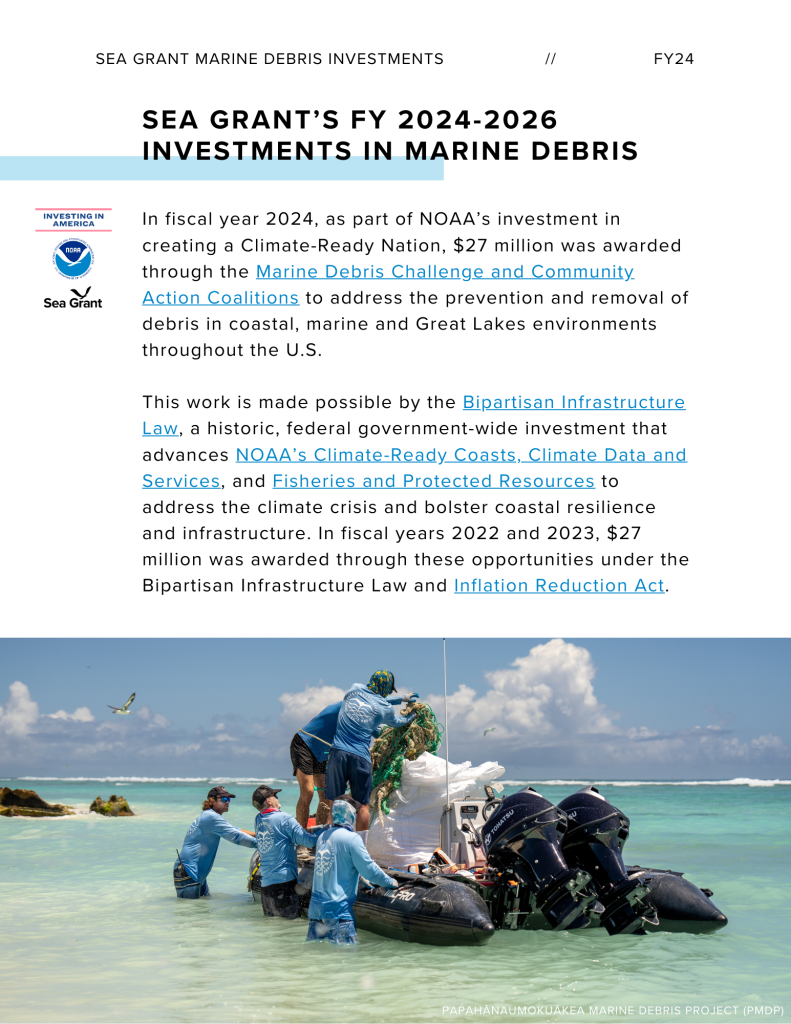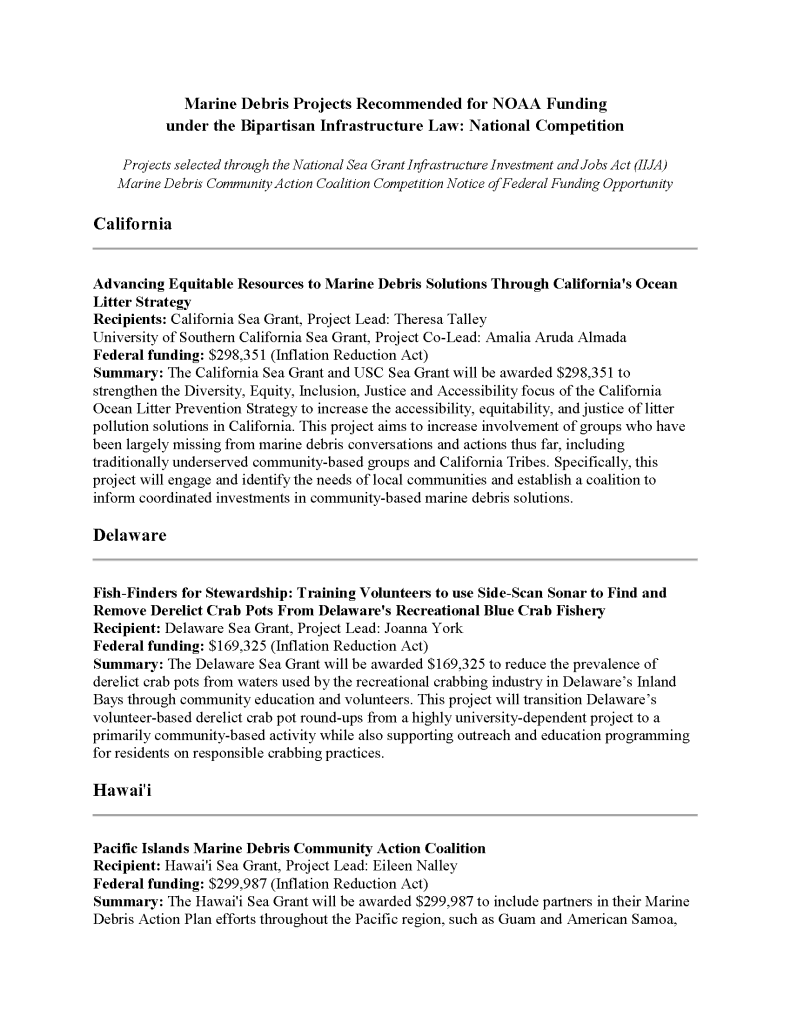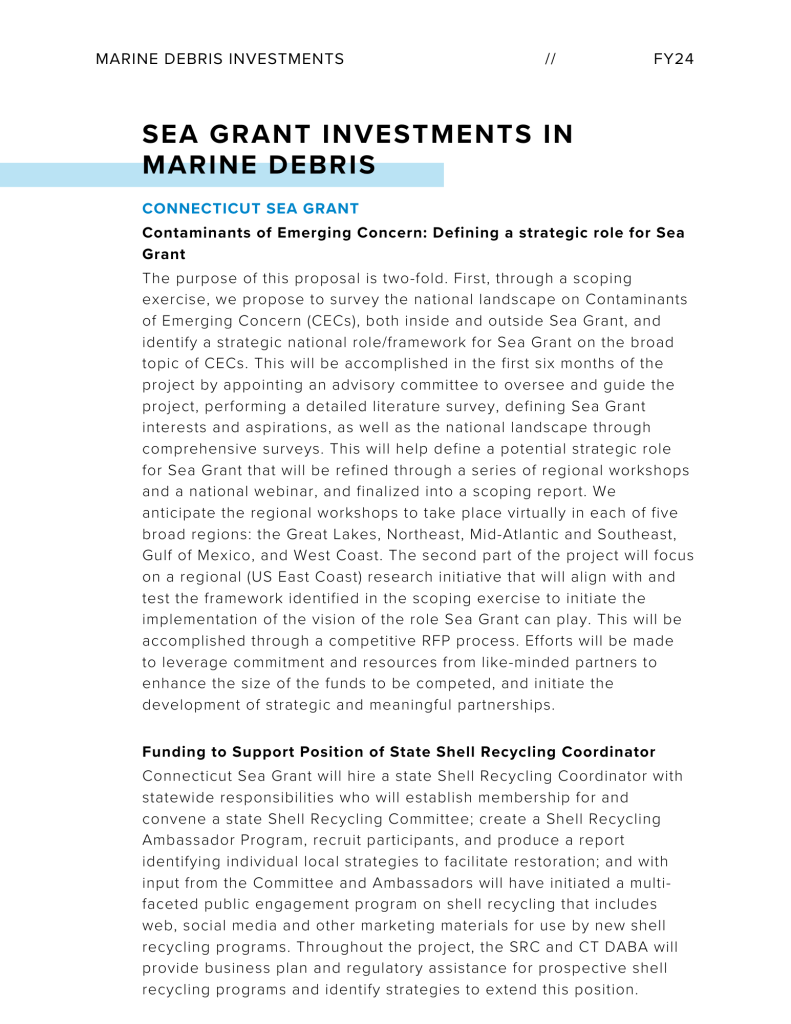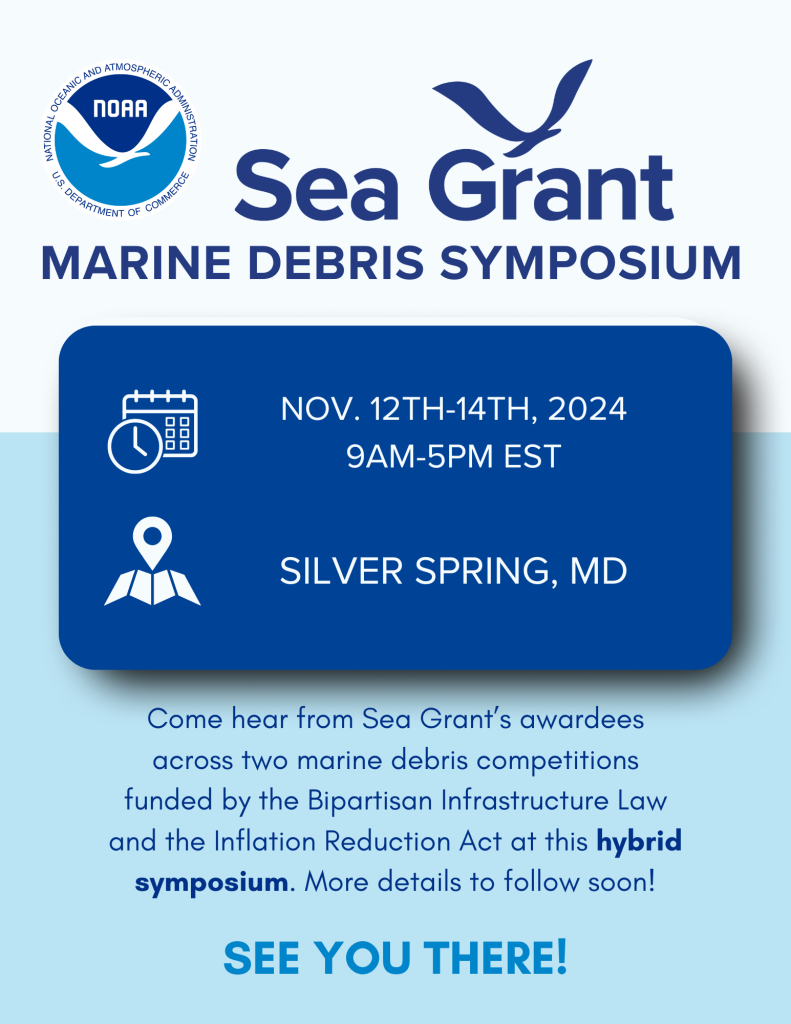Marine Debris
Sea Grant works closely with communities nationwide and in partnership with the NOAA Marine Debris Program to address marine debris challenges in marine, coastal and Great Lakes environments. Through research, extension and education, Sea Grant informs and enhances strategies to prevent the creation of marine debris and remove marine debris from the environment.
With funding through the Bipartisan Infrastructure Law and Inflation Reduction Act, Sea Grant has invested over $50 million in projects across the country to advance marine debris prevention and removal technologies and approaches, and to translate innovative research into practical results, and engage communities, groups and localities — particularly those that have been historically underserved — in translating research into collaborative marine debris removal and prevention efforts.
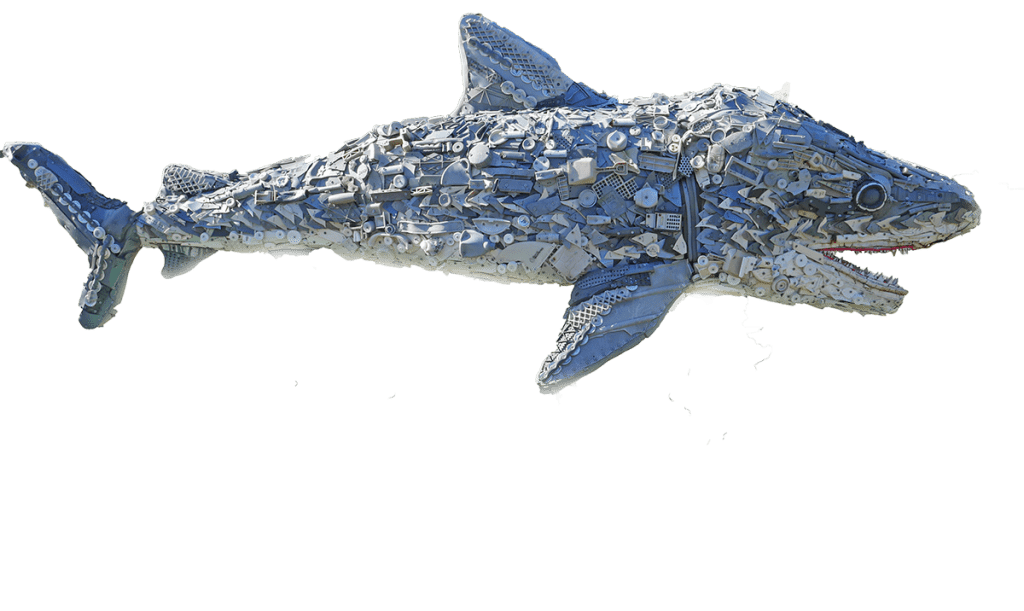
What is Marine Debris?
As one of the most widespread pollution problems facing the world’s ocean and waterways, our waters are filled with marine debris, items that do not belong in it. Marine debris includes any manufactured or processed solid material that is directly, indirectly, intentionally or unintentionally disposed of or abandoned in the marine environment or the Great Lakes.
How is marine debris harmful?
When marine debris is in our waters and on our shores, beaches and public recreation areas are impacted, affecting ecotourism and local economies. The Great Lakes economy relies heavily on tourism and recreation by maintaining healthy coastal resources while keeping the environment clean. Beach-goers and visitors can be impacted by marine debris as well as these items can cause physical bodily harm if found on shorelines or in the water. Human consumption of marine debris is also possible if small particles are accidentally ingested, however potential health risks from different plastics and chemicals are still unknown.
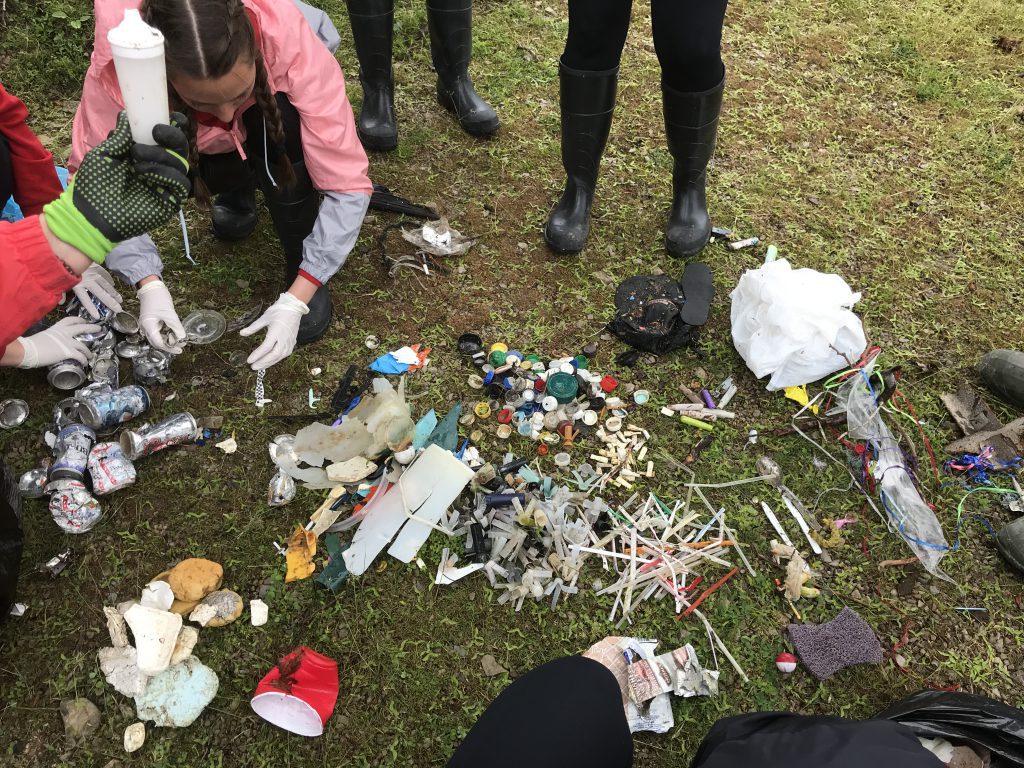
What can we do to mitigate the impacts of marine debris?
Being aware of how to properly dispose of fishing line and garbage can greatly reduce impacts to marine ecosystems. Beach cleanups are another great way to combat shoreline trash while collectively working together to reduce debris in public areas. Reducing reliability on single-use plastics can also greatly reduce the amount of marine debris entering our waterways and marine ecosystems. Read more about how to help at NOAA’s Marine Debris Program.
Funded Projects
Sea Grant has supported marine debris research for decades. In recent years, several projects have been competitively selected through opportunities supported by the Bipartisan Infrastructure Law and leveraging funds from the Inflation Reduction Act: The Marine Debris Challenge Competition and The Marine Debris Community Action Coalitions.
The Challenge Competition supports innovative, transformational research-to-application projects that will address the prevention and removal of marine debris, while the Community Action Coalitions support the creation of coalitions and partnerships to address marine debris prevention and removal. Learn more about these selected projects and other marine debris work below.
Sea Grant Marine Debris Symposium
Sea Grant’s Annual Marine Debris Symposium brings together grantees, researchers, community members, and other partners to share updates on Marine Debris Challenge and Community Action Coalitions Competition projects, discuss marine debris prevention and removal, and create a network of peer support for current and future work.
The 2024 Sea Grant Marine Debris Symposium will take place in person on November 12th-14th at the NOAA Auditorium and Science Center in Silver Spring, MD with options for virtual attendance. Check out the symposium’s agenda for more details, including speakers, session topics and registration information.
Watch the videos from previous meetings below to learn more about Sea Grant’s work in marine debris.
Sea Grant Marine Debris Symposium
Marine Debris Impacts
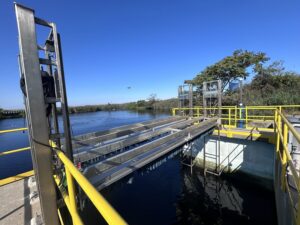
Sea Grant Marine Debris Grantee PolyGone Hosts Grand Opening of their Microplastic Removal Pilot at ACUA
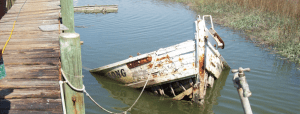

Virginia Sea Grant extension helps address local abandoned and derelict vessels
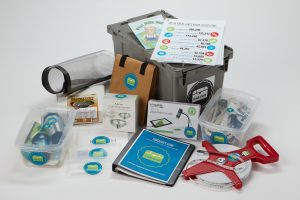

Wisconsin Sea Grant commits to teaching the impacts of marine debris with a new teaching tool
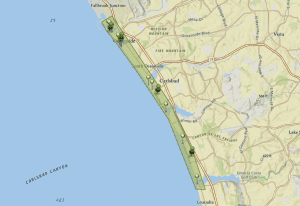

USC Sea Grant shares sources of marine debris through an interactive StoryMap
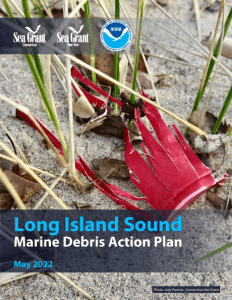

Connecticut and New York Sea Grant release Long Island Sound Marine Debris Action Plan
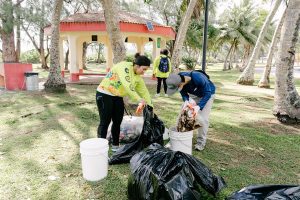

Sea Grant’s commitment to cleaning local beaches and shores
Marine Debris News



Sea Grant Marine Debris Grantee PolyGone Hosts Grand Opening of their Microplastic Removal Pilot at ACUA
Grand Opening of the Microplastic Removal Pilot at ACUA (Photo Credit: Shirin Sood | PolyGone Systems On September 12, 2024, PolyGone successfully held the Microplastic Removal Pilot Grand Opening at


Sea Grant Marine Debris Grantee PolyGone Announces the Grand Opening of its Microplastic Removal Pilot
PolyGone Systems is pleased to announce the Grand Opening of the Microplastic Removal Pilot Project and the Educational Pavilion at the Atlantic County Utilities Authority (ACUA)! The Grand Opening will
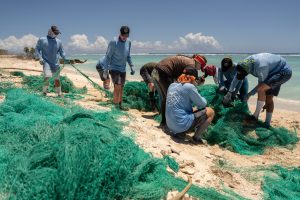

Biden-Harris administration invests $27 million to support community-driven marine debris solutions through Investing in America agenda
Today, the Department of Commerce and NOAA announced $27 million in funding for projects to prevent and remove marine debris in coastal and Great Lakes communities as part of President
